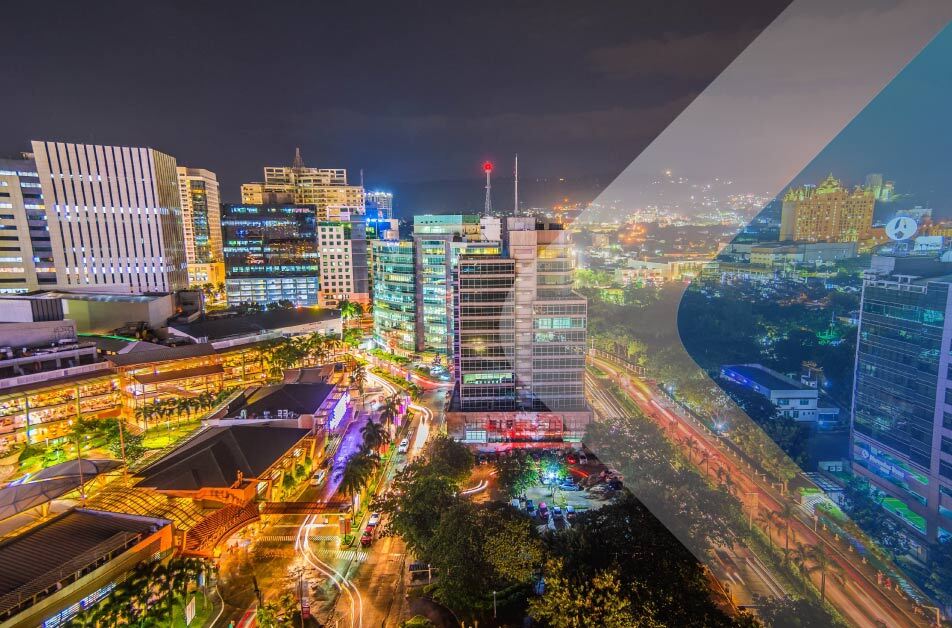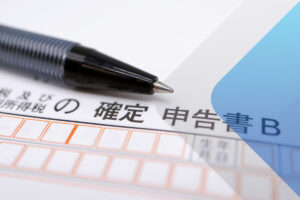Employer Of Record in South Korea
We make it easy and painless to expand your business into South Korea. Forget about dealing with local regulations, confusing tax laws and international payroll management. We take care of all that so you don't have to.
Accelerate your growth into South Korea Compliantly and hassle-free
How we can help you expand in South Korea
As your EOR in South Korea we’d help you expand by hiring employees and running their payroll without establishing a local branch office or subsidiary.
Your candidate is hired by a PEO in South Korea provider in accordance with local labor laws and can be onboarded in days instead of the months it typically takes. Shortly after, your new employee will be working for you, just like any other member of your team.
Expand to South Korea with Serviap Global
Through our PEO and EOR services, you can hire qualified talent in your industry without the trouble of opening your own legal entity.
In just a few days, you can easily and safely build a presence in South Korea being sure that your staff will be hired in compliance with labor and tax regulations
Quick Facts
Currency:
South Korean Won (KRW)
Capital:
Seoul
Payroll Cycle:
Monthly
Language(s):
Korean
South Korea Country Facts
A beautiful country, South Korea sometimes has heavy rains in the summer and cold winters. The most notable part of South Korea’s terrain is how mountainous the country is. It is located between Japan and China and it also boasts a highly educated and technologically savvy population.
The Economy
South Korea’s economy is high-tech and industrialized. The first couple of months in 2021 saw South Korea become one of the first OECD countries to have recovered to pre-pandemic levels. South Korea maintains a focus on prioritizing high-technology industries, such as automobile and electronics production, as well as information technology.
The Importance of Small and Medium-sized Companies
Korea’s big businesses form the backbone of the economy – Samsung alone provides 20% of Korea’s exports. But small- and medium-sized enterprises (SMEs) provide over 80% of the country’s jobs.
Population Characteristics
South Koreans have the highest education level in Organization for Economic Co-operation and Development (OECD) countries. 98% of the population completes secondary education and 63% earn a college education. The literacy rate is 98%.
Economic Opportunities
South Korea is trying to ease excessive regulations to make the market more accessible for both foreign and local companies. After achieving this it has become one of the top 10 business-friendly economies in the world.
South Korea is a sophisticated market with growing levels of disposable income. With its hi-tech economy this country helps lead the world in electronics manufacturing, flat-screen TVs, semiconductor chips, and mobile phones.
Key Sectors of the National Economy
Main industries include:
- Aerospace
- Creative industries (Design) ICT – Communications, Industrial Electronics, Consumer Electronics
- Electronics
- Telecommunications
- Auto production
- Shipbuilding
- Chemical production 5
The biggest companies in South Korea are the likes of Hyundai, LG and Samsung.
Human Talent
Korean is the official language, but they teach English widely in the country’s schools. South Koreans are
highly educated and are known for being hardworking.
Prominent Cities for Business
- Seoul
Seoul is the capital of South Korea on the River Han. Seoul is the largest trade, finance, and business
hub of South Korea. - Busan
Busan is the second largest city of South Korea, with the largest commercial port in the country and it serves as the educational, cultural, and business center of the south-east. The city is famous for its shipbuilding, machinery and fashion. - Incheon
Incheon is known for its commerce and trade, as well as its emerging biotech industry. - Daegu
Daegu is best known for its electronics and textiles industries, as well as its agriculture, which mainly
grows apples.
Technological Ecosystem
South Korea boasts a worldwide high internet accessibility of around 82% (closer to 98% among the 18-24-year- old range) and about 78% of citizens use smartphones. Which is why South Korea is the perfect place for tech startups to launch their product or service.
Facilities for Foreign Investment
South Korea could hardly make foreign businesses feel more welcome. The Invest Korea Plaza (IKP) is Korea’s center aimed at growing businesses and providing investment support for foreign investors. South Korea can boast a robust shipping and air cargo infrastructure known as both a market destination for U.S. products and services, but also a hub for expansion into other world markets.
Business Culture in South Korea
South Korea Gastronomy: regional and traditional cuisines
South Koreans are a healthy bunch, not only due to their diet but also non-alcoholic drinks such as green and ginseng tea which are full of antioxidants while drinks containing barley like Shik-Hye and Barley tea, help the digestive system.
Kimchi
South Korea’s most famous side dish. Kimchi is fermented vegetables.
Bulgogi (marinated beef barbecue)
A juicy, savory dish of grilled marinated beef. It is often grilled with garlic and sliced onions to add flavor to the meat. Which is then wrapped in lettuce and eaten with ssamjang (a thick, red spicy paste).
Bibimbap (mixed rice)
This is basically a bowl of ingredients, which of course include rice, but also seasoned and sauteed vegetables, beef, soy sauce, chili pepper paste and a fried egg. This varies by region.
General Highlights
| Year | 2022 |
| Country | South Korea/Republic of Korea |
| Capital | Seoul |
| Num. States / Province | 9 |
| Principal Cities | Seoul, Busan, Incheon, Daegu |
| Language | Korean |
| Local Currency | South Korean won (KRW) |
| Major Religion | Christian & Buddhist |
| Date Format | yyyy/mm/dd |
| Thousands Separator Format | 99,999,999.99 |
| Country Dial Code | +82 |
Time Zone | Korea time zone is typically 11-12 hours ahead of US Eastern Standard Time (EST), New York time. |
| Population | 52 million |
| Border Countries | China, Japan, North Korea |
| Continental surface | 100,370.00 km2 |
| Fiscal Year | January 1 – December 31 |
| VAT % | 10% |
| Minimum Wage | 9,160 won/day (approximately $7.91 USD) |
| Taxpayer Identification Number Name in the country | TIN |
| Current President | Moon Jae-in |
What you need to know about employing personal in South Korea:
| Laws | Brief Description |
| Korean Labor Standards Act and Trade Union and Labor Relations Adjustment Act |
These laws govern trade and labor. |
National Pension System (NPS) | The NPS is a single national pension system and covers most employees and self-employed persons aged 18-59 in Korea. It also provides for voluntary coverage for older people aged 60-64 and coverage for the unemployed. The general coverage criteria for the NPS are age and residence. |
Key Tax and Labor Authorities
| National Tax services (NTS) | This is the center for tax. |
| Ministry of Finance | This handles the economy and Treasury department in India. |
Labor Contracts
| Contracts must be in writing | A foreign employee must have a work permit issued through the Employment Center which lasts for one year. The employer must prove that a Ukrainian citizen cannot fill the role in the foreign employee’s place. |
Employment Contracts | The Labor Standards Act dictates contracts must contain: • Name and address of both the company and the employee • Salary • The amount of time an employee can take off for sick leave • Working hours • Details of holiday entitlement and paid annual leave • General working conditions • Location of work • Job description |
| The Federation of Korean Trade Unions | India is a member. |
| Work Hours | 8 hour days, 40 hour weeks |
Payroll
| Minimum Wage | 9,160 won/day (approximately $7.91 USD) |
| Overtime | An employee may work up to 12 hours of overtime per week. For each hour of overtime work, 150% of the usual wage should be paid |
13th Salary | There is no legislation for 13th-month payments in South Korea. However, it’s common for Korean companies to pay performance-based bonuses. |
| Occupational Safety and Health Act | Korea Occupational Safety & Health Agency is a body in South Korea, which serves to protect the health and safety of Korean workers. |
Vacations or PTO | Companies with full-time salaried employees are legally required to provide 15 days of paid annual leave after one year of service with the company. An additional vacation day is paid for each two years of service thereafter. The statutory vacation days earned per year are capped at 25 days. |
Leaves of Absence Employees have the right to paid absences for the following things: | • Maternity leave Female employees are entitled to 90 days leave. The parent is entitled to 40% of his/her monthly income from Employment Insurance • Sick Leave Employers do not legally have to provide leave to employees for non-work related illnesses or injuries. However, companies often provide paid sick leave anyway. |
Employers Contribution or Labor Cost
Annual Taxable Income
| Over this amount | Not over this amount | Tax % on Excess |
| up to 12 million KRW | 6.60% | |
| 12 million | 46 million KRW | 16% |
| 46 million | 88 million KRW | 26.4% |
| 88 million | 150 million KRW | 38.5% |
| 150 million | 300 million KRW | 44% |
| 500 million | 1 billion KRW | 46.2% |
| 1 billion KRW and up | 49.5% |
Corporate Tax Rates
| Taxable Gross Income | Tax Rate |
| Flat rate | 25% |
Disability
In South Korea, there is an Employment Promotion Law for Persons with Disabilities. This law ensures that employers who have more than 300 employees must hire those with a disability at a rate of at least 2%.
Public Holidays
In addition to vacation days, employees are entitled to the 1st of May (Labor Day) as a mandatory paid holiday in Korea. Private employers are also obligated to provide workers with paid holidays on public holidays.
Date | Holiday Name |
31 December – 2 January | New Years’ holidays (Lunar calendar) |
1 Mar | Independence Day |
5 May | Children’s Day |
8 Apr | Buddha’s Birthday |
6 Jun | Memorial Day |
15th Day of the eight lunar month | Harvest Festival |
3 October | National Foundation Day |
9 October | Hangul Day |
25 December | Christmas Day |
Termination
Type of Termination | Brief Description |
Justified Dismissal | The Korean Labor Standards Act insists that the employer must prove why the termination was justifiable. Things such as theft, not coming to work, violating laws and so forth, are deemed sufficient reasons. |
Unjustified Dismissal | Once the ministry of officials who are handling the case of unjustified dismissal decide the employee was unfairly dismissed, they may be reinstated or receive compensation. |
Voluntary Resignation | The authority to accept a voluntary resignation is under the employer unless the employment rules note otherwise. |
Length of Employment | Severance Amount |
For each year of consecutive service | The amount of severance pay is equal to the employee’s one month salary. |
You might be interested in reading...
Your one-stop global hiring solution. Secure, reliable, compliant

Premium Support
No matter how big or small, we are ready to answer all your questions- anytime, anywhere.

Regional expertise
Our team of in-country experts help you navigate new markets and cultural nuances

Top-tier Benefits Packages
Great talent deserves great benefits. We offer a competitive range of benefits so that you only attract top-tier talent worldwide.

You remain 0% liable
Shift the worry from your shoulders to ours! We stay on top of regulations so you’re always 100% complaint with local laws







